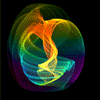3rd type of meditation? - Discussion
3rd type of meditation?

Jo Mo Glang-Ma, modified 10 Years ago at 7/26/13 4:26 PM
Created 10 Years ago at 7/26/13 4:26 PM
3rd type of meditation?
Posts: 2 Join Date: 6/25/13 Recent Posts
I was thinking about types of meditation. There seems to be two parent types, concentration and insight, with many off-shoots.
Is there a third type that is the opposite of concentration? i.e. Being completely open to incoming stimulus but not applying insight, just letting all stimulus flood in. I think of it as the filterless meditation but don't know what to call it. Maybe acceptance meditation?
Thanks for your thoughts.
Is there a third type that is the opposite of concentration? i.e. Being completely open to incoming stimulus but not applying insight, just letting all stimulus flood in. I think of it as the filterless meditation but don't know what to call it. Maybe acceptance meditation?
Thanks for your thoughts.

Nikolai , modified 10 Years ago at 7/26/13 6:38 PM
Created 10 Years ago at 7/26/13 6:38 PM
RE: 3rd type of meditation?
Posts: 1677 Join Date: 1/23/10 Recent PostsSpencer d Post:
I was thinking about types of meditation. There seems to be two parent types, concentration and insight, with many off-shoots.
Is there a third type that is the opposite of concentration? i.e. Being completely open to incoming stimulus but not applying insight, just letting all stimulus flood in. I think of it as the filterless meditation but don't know what to call it. Maybe acceptance meditation?
Thanks for your thoughts.
Is there a third type that is the opposite of concentration? i.e. Being completely open to incoming stimulus but not applying insight, just letting all stimulus flood in. I think of it as the filterless meditation but don't know what to call it. Maybe acceptance meditation?
Thanks for your thoughts.
Shinkantaza, just sitting, though it could be argued depending on a yogi's momentum, just sitting could result in a concentrated and discerning mind...maybe.

Bailey , modified 10 Years ago at 7/26/13 7:39 PM
Created 10 Years ago at 7/26/13 7:35 PM
RE: 3rd type of meditation?
Posts: 267 Join Date: 7/14/11 Recent Posts
It is a good question. Whenever you are observing reality as it is (your own reality, not outside) you are practicing Insight meditation. Whether that reality be breathe/body/intention/thought.
So yes, what you describe is insight meditation. You never need to apply insight, you simply watch. The meditation you describe is used by the Thai Forest Tradition as well as instructed during 20 (30?) day courses in the Goenka tradition.
So yes, what you describe is insight meditation. You never need to apply insight, you simply watch. The meditation you describe is used by the Thai Forest Tradition as well as instructed during 20 (30?) day courses in the Goenka tradition.

Dream Walker, modified 10 Years ago at 7/27/13 11:01 AM
Created 10 Years ago at 7/27/13 11:01 AM
RE: 3rd type of meditation?
Posts: 1693 Join Date: 1/18/12 Recent PostsSpencer d Post:
I was thinking about types of meditation. There seems to be two parent types, concentration and insight, with many off-shoots.
Is there a third type that is the opposite of concentration? i.e. Being completely open to incoming stimulus but not applying insight, just letting all stimulus flood in. I think of it as the filterless meditation but don't know what to call it. Maybe acceptance meditation?
Thanks for your thoughts.
Is there a third type that is the opposite of concentration? i.e. Being completely open to incoming stimulus but not applying insight, just letting all stimulus flood in. I think of it as the filterless meditation but don't know what to call it. Maybe acceptance meditation?
Thanks for your thoughts.
I would refer you to the wiki pages for a list of meditations - meditations
Basically if you focus on something static (unchanging) it is concentration and if you focus on something transitory it is insite. Things like breath and walking can go either direction depending on how you focus. I have gotten concentrated or done insite depending on how I focus on the stimulus of my feet as static or transitory.
You sound like your talking about -
Choiceless Awareness which would be transitory stimulus and thus insite.
Daniel M. Ingram::
Choiceless Awareness practices are practices that involve no specific focus except whatever sensations arise. They are found in many traditions.
Thus, rather than have a specific width of attention, they allow attention to do whatever it does, with some caveats.
One is still generally advised to avoid being lost in the content of thought, and rather see the sensations that make up thought. One is also advised to various degrees depending on the tradition or teacher to be actively mindful of what arises, rather than just "sitting there like an idiot," as a Zen teacher once said.
Choiceless awareness practices have the advantage of being very natural and accepting of what arises, and, as acceptance of what arises is key to practice, this is a distinct benefit.
They have the disadvantages for many of lacking the precision and focus that allows the penetration of objects to see their true nature and gain insights rather than getting lost in them, not perceiving them clearly, and related problems.





